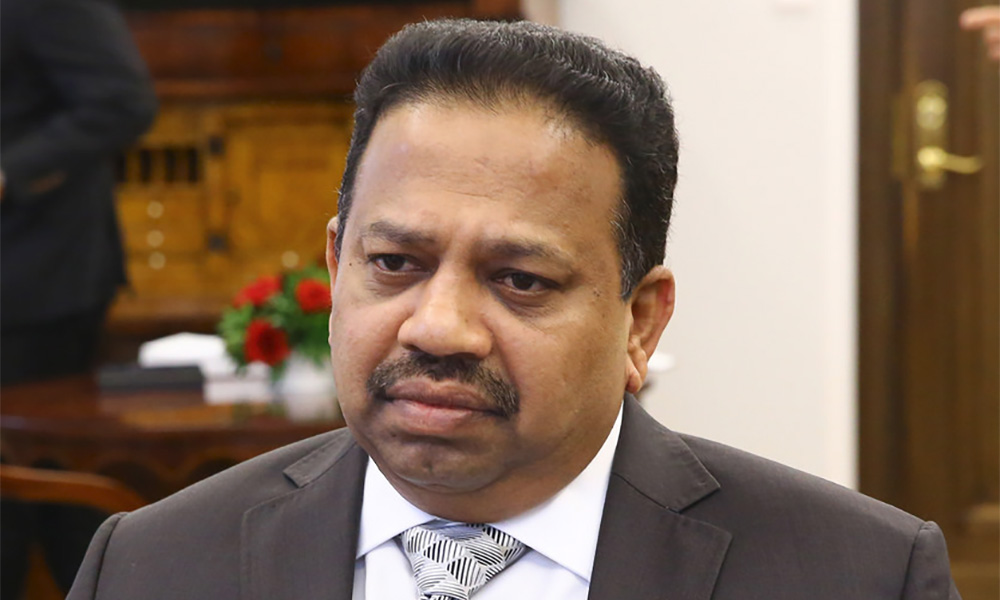COMMENT | On July 31, MIC president SA Vigneswaran questioned the role of the Yang di-Pertuan Agong with regard to the revocation of all emergency ordinances.
Before I weigh in on this, it is important to emphasise the reason we are in this conundrum. It is clear that, from his tone and context, Vigneswaran is more interested in defending the government's actions, rather than protecting the Constitution - even to the extent of snubbing the royal institution.
What a sad day for all of us if the leaders we look up to fail to uphold the highest order of the land and respect the fundamentals of our democracy. No self-respecting country should abandon its history and institutions out of deference to who yields power.
Firstly, the MIC president argued that the ruling government’s action to revoke the ordinances before their natural death was justified. He opines that it is likely the government has naturally understood that when His Majesty expressed that the emergency must not extend beyond Aug 1, His Majesty’s desire to revoke it was implied.
However, this argument is flawed and unintelligent. Under the Constitution, there are only two ways in which a proclamation of emergency can come to an end. First, if the Agong revokes it; second, if the two Houses annul it by resolution.
Following the government's actions, the Comptroller of the Royal Household of Istana Negara had stated that “His Majesty expresses great disappointment over the statement made on July 26 that the government has revoked all emergency ordinances promulgated by His Majesty, although the revocation has not been given his royal assent.”
'MIC president is incorrect'
His Majesty emphasised that “Article 150 (2B), read with Article 150 (3) of the Federal Constitution, clearly vests the power to enact and revoke the ordinance with His Majesty” - which was not done in this case.
This was further enunciated in Teh Cheng Poh vs PP, whereby the Privy Council held that: “The power to revoke, however, like the power to issue a proclamation, vests in the Yang di-Pertuan Agong, and the Constitution does not require it to be exercised by any formal instrument.”
Therefore, it is presumptuous for the ruling government to naturally assume that when His Majesty stated that the emergency ordinances must not continue beyond Aug 1, it equates to His Majesty’s royal assent to revoke all emergency ordinances.
Hence, the statement made by the MIC president is incorrect and disregards the procedures laid out in the Federal Constitution. Evidently, the statement made by the de facto law minister was an act that misled Parliament and the public, giving rise to a constitutional crisis.

Secondly, Vigneswaran opined that the need to debate on the emergency ordinances is superfluous, and “represents a setback towards rebuilding the stability of our nation”. Further stating that this special sitting of the Parliament is to primarily debate on the Covid-19 recovery plan and issues related to the pandemic.
This clearly shows his lack of understanding of the impact the emergency ordinances had on the lives of the people. The ordinances encompass laws that consequently affect the livelihood of individuals and play a major role in the handling of the pandemic.
Moreover, in the statement released by His Majesty regarding the reconvening of Parliament, His Majesty urged that MPs must be allowed to reconvene to debate the emergency ordinances and the National Recovery Plan.
However, in the special parliamentary sitting agenda, the motion to debate the emergency ordinances was excluded, contravening the desire of His Majesty and Article 150 (3) of the Federal Constitution. This statement seems to have gone unnoticed by Vigneswaran.
Defiance of Agong's wishes
Thirdly, he relies on Article 40 (1A) whereby there is a mandatory requirement for His Majesty to act on the advice or after considering the advice of the cabinet or prime minister. The MIC president states that we are now facing a situation where His Majesty is advising the cabinet on what to do.
It is evident that he fails to understand that the ruling government’s actions have brought about a constitutional crisis, and a defiance of His Majesty’s wishes.
Although Article 40 (1) of the Federal Constitution states that His Majesty acts on the advice or after considering the advice of the cabinet or the prime minister, the Agong still has discretionary powers vested under Article 150 (2B) read with Article 150 (3) on matters relating to the proclamation or revocation of an emergency.
We agree that the list of order papers for the parliamentary session is prepared by the government of the day, not by the constitutional monarch. However, the MIC president fails to notice that the role of the Agong vested under Article 150 (2B) and (3) is clear.
Malaysia practices parliamentary democracy and constitutional monarchy with His Majesty as the paramount ruler. In a constitutional monarchy, His Majesty has a role to reinforce democratic legitimacy within the nation, and His Majesty’s wishes must be upheld.
Vigneswaran was right to point out that we are “indeed treading on uncharted waters”. With that, the MIC president must also understand that we are dealing with a constitutional crisis.
This matter is about a minister misleading the Parliament and the public. It must not be ignored. The Federal Constitution is the supreme law of the land, and no authority is allowed to defy it.
As a nation, we must respect the role and the function of the Agong, and discounting parties who fail to do so sets a dangerous precedent in a constitutional monarchy.
MOHAMED KHALID NORDIN is an Umno vice-president.
The views expressed here are those of the author/contributor and do not necessarily represent the views of Malaysiakini.

